https://www.moneylife.in/article/who-is-responsible-for-keeping-farmers-in-bihar-and-uttar-pradesh-poor/64639.html
Poverty in Uttar Pradesh & Bihar is not accidental
By RN Bhaskar
Also read https://www.moneylife.in/article/the-fanciful-figures-of-uttar-pradesh/64715.html
The prime minister has often promised that he is determined to double farmer incomes. He was supposed to do this by this year.
But then, like most promises made, even this is likely to be remembered in the breach than in its implementation.
Exploitation
But when you examine the situation closely, you realise that keeping the farmer poor could be part of a strategy to keep them dependent on middlemen. Middlemen, often referred to as arthiyas, 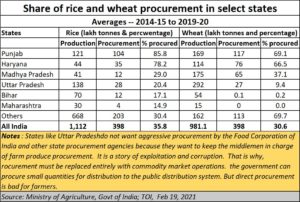 play an especially important role in UP and Bihar. They are the people who also control the fortunes of farm families. They act as money lenders, matrimonial advisors and — most importantly – as advisors about which party and person farm families should vote for.
play an especially important role in UP and Bihar. They are the people who also control the fortunes of farm families. They act as money lenders, matrimonial advisors and — most importantly – as advisors about which party and person farm families should vote for.
Of course, the farmers can ignore them, but at their own peril. Middlemen know which block has voted for whom. And woe betide the farmers if they have gone against the current dispensation. They would then find that their crops don’t get lifted in time. They could find robbers waylaying the tractors so that the crop does not reach the markets. There are several ways in which farmers can be forced to toe the line. So, unless another party brings with it some additional musclemen, to ensure protection for these families and friends, vote swings do not take place.
And there is good evidence to show that the state governments — in collusion with the central government — have colluded in this practice.
Rice and wheat
Take for instance the procurement of rice and wheat, two major crops in UP and Bihar (though the latter has increasingly moved over to maize).
Look at the table.
Even though both UP and Bihar are electorally very important for anyone who rules at the centre – they send p huge numbers of elected representatives and hence legislators to the Parliament – they do not use their clout to get the rice and wheat lifted.
Punjab and Haryana, where farmers are better off, and hence do not really need handholding, they manage to get 86% and 78% of their rice lifted by the procurement agencies – usually FCI or the Food Corporation of India (but at times state procurement agencies as well). But poorer UP and Bihar get only 20% and 17% of their rice lifted. The rest of the rice gets lifted by middlemen (though some goes for personal consumption as well). The middleman pays them prices that are significantly lower than those offered by procurement agencies. But most farmers have no choice. Procurement is done only from immensely powerful and well-connected farmers in these states.
It is worse when it comes to wheat. UP and Bihar saw barely 9% and 0.2% of their wheat lifted. That could be one reason why Bihar decided to move over to corn, which they collectively sell in Delhi markets.
Madhya Pradesh used to face the same plight a decade ago. But Shivraj Singh Chauhan got the state to pick up wheat at prices higher than FCI procurement prices (it could soon become the breadbasket for India). It was a good strategy because he wanted to consolidate his vote bank with the farmers and disrupt the existing hierarchical structure of exploitation. The strategy worked.
Chauhan also focused on irrigation. Consequently almost 60% of MP’s land is under irrigation, compared to less than 20% of Maharashtra’s land (all the water gets cornered by the powerful sugarcane barons). Therefore, MP has been climbing the ranks in economic prosperity faster than either UP or Bihar.
The strategy these two states adopt is to continue exploiting the farmers. Do bear in mind that almost 78% of people in UP are farm linked and from rural areas. Bihar’s rural population accounts for 90%. And both states are known for the tremendous oppression and exploitation that takes place, usually through farm practices.
UP’s dislike of MSPs
Take another example. UP is the country’s largest producer of milk, sugarcane, and horticulture. A common thread that runs through all the three is the absence of MSPs or minimum support prices. Unlike progressive parts of India, where milk sells for around Rs.26 a litre.
Actually, price is determined by fat content. So, buffalo milk which has more fat content can fetch as much as Rs.80 a litre. UP does not pay this price. It pays Rs.16-18 to farmers. At this price, farmers make a profit (all income less all expenditure) of Rs.2 or Rs.3 per litre. If they got Rs.26, their profit margin would jump to Rs.10-11. That would allow farmer incomes to go up by 4-5 times. The prime minister does not have to do anything. Just ensure that farmers get a fair price for milk.
Ditto with sugarcane. Announce MSPs. Farmers love sugarcane because it is a lazy crop – you sow the seeds, give it water, and the crop grows and grows. UP has water. It has lots of fertile land. But in UP sugarcane faces one problem (just like in Maharashtra, the second largest producer). There is a command area structure in place. Farmers must sell cane only to the factory allocated to them, nowhere else. Free pricing is forbidden. The mill owners, in discussion with politicians and farm leaders, arrive at prices that are not very remunerative. And the money sometimes does not get paid for a year. So, farmers must fall back on the arthiyas.
Even horticulture has no MSP. When it comes to vegetables, farmers are lucky to get even 10% of the market price of this produce.
Solutions which politicians do not like
If prime minister Modi is sincere about his concern for farmers, he should do three things.
First abolish the procurement system. Don’t purchase directly from farmers. Instead purchase from commodity exchanges, which then get their grain from farmers through the warehouses linked to these exchanges and commodity markets. That will mean stripping the FCI of its power to procure from farmers.
At that point, the procurement price paid through exchanges becomes the market price. Even middlemen are compelled to purchase rice and wheat at these prices.
But that would reduce the clout that middlemen enjoy and the cash that politicians get from them. So, it is an idea that politicians dismiss outright. That is why the WDRA (Warehouse Development and Regulation Act) has not been given teeth even after eight years.
Second, promote cooperatives which can then set up milk processing facilities. Call in either NDDB or private players like Hatsun, which pay a minimum of Rs.26 a litre. But, again, this would break the backs of the middlemen.
Third, strengthen Farmer Producer Organisations FPOs for each type of vegetable and fruit. The FPOs could act as aggregators, and either process the vegetable or fruit themselves, or take them directly to the markets. But the two state governments do not want this.
That is also why milk, sugarcane and horticulture have no place in the three farm laws that the PM has been advocating so vociferously.
So, farmers remain poor, and the story of exploitation continues.
And then you hear mann ki baat about atma nirbhar Bharat, right?






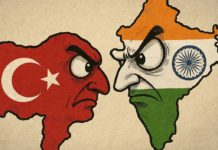






















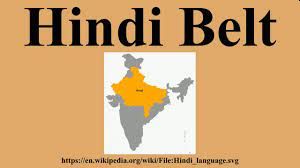
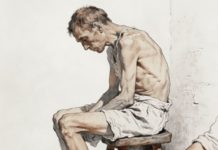

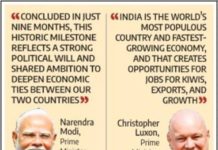








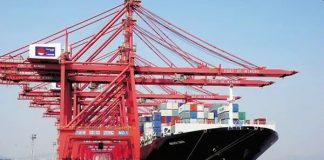
COMMENTS